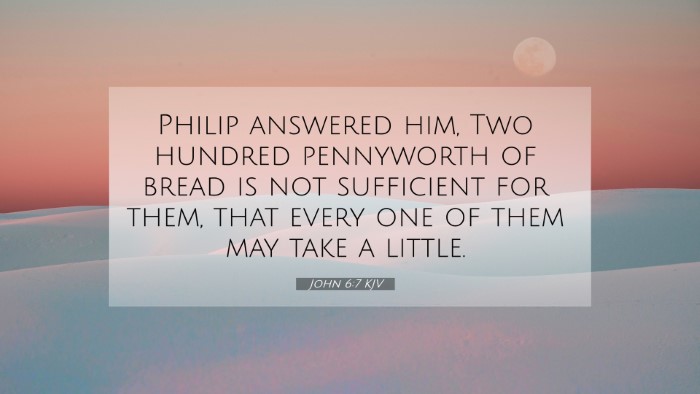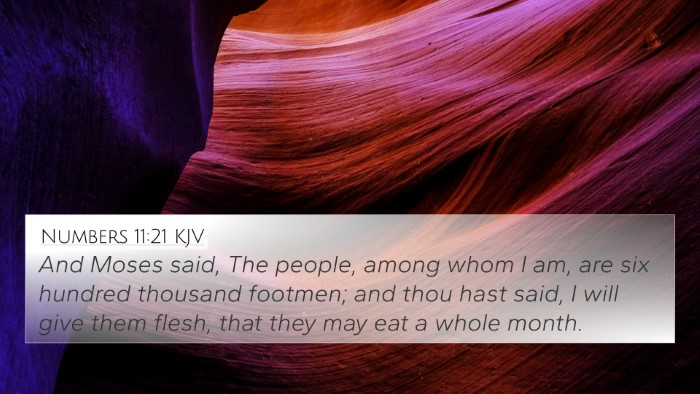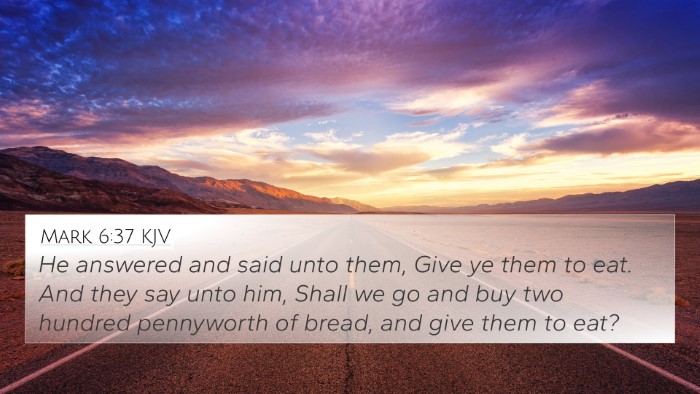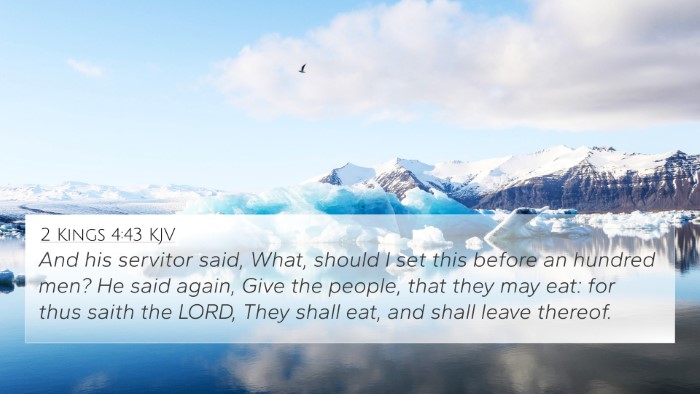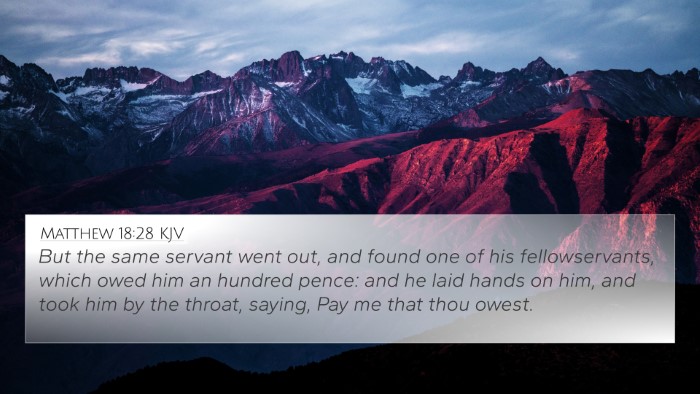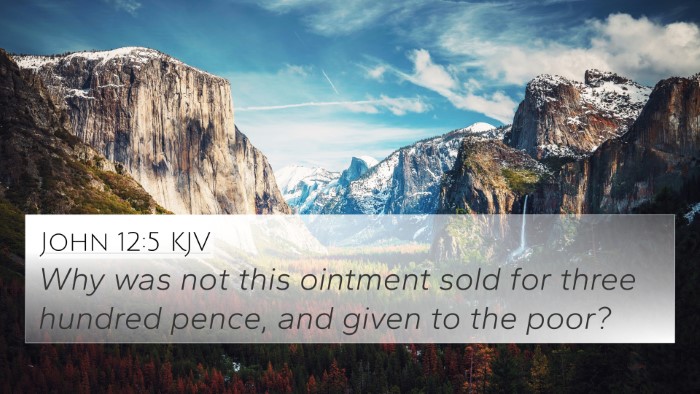Understanding John 6:7
John 6:7 states, "Philip answered him, 'Two hundred denarii would not buy enough bread for each of them to get a little.'" This verse comes in the context of the miraculous feeding of the 5000, a significant event in the ministry of Jesus that showcases His divine provision and power.
Summary of the Verse
In this passage, Philip, one of Jesus' disciples, responds to the Lord's question about how to feed the large crowd of people following Him. He emphasizes the insufficiency of their resources, indicating that even a substantial amount of money would fall short when it comes to catering to the needs of so many. Here's a deeper exploration of the verse drawn from public domain commentaries:
Commentary Insights
- Matthew Henry: Henry points out that Philip’s answer reflects a lack of faith in Jesus’ ability to provide. His calculation of cost brings to light human limitations in understanding divine possibilities. This underscores the theme of faith over material assessment.
- Albert Barnes: Barnes notes that the mention of "two hundred denarii" signifies a considerable sum, indicating the magnitude of the problem. He emphasizes the disciples' misunderstanding of Jesus' potential and the immediate worry over logistical concerns rather than trusting in Jesus' power to provide.
- Adam Clarke: Clarke elaborates on the Greek terms used in this passage, shedding light on the currency and its value. He stresses that Philip was aware of the enormity of the need and the limitations of their resources, which serves as a lesson on faith and reliance on God.
Thematic Connections
The themes present in John 6:7 resonate throughout the Bible and provide rich avenues for cross-referencing:
- Faith vs. Resources: The struggle between human limits and divine capability is a recurrent theme in scripture. References include Matthew 14:16 and Philippians 4:19.
- God’s Provision: This narrative foreshadows God's providence, as seen in Exodus 16:15 (Manna in the wilderness) and 2 Kings 4:42-44 (Elisha feeding a hundred men).
- Discipleship Lessons: The learning curve experienced by the disciples in recognizing who Jesus is paralleled in passages like Mark 8:4 and Luke 9:15.
Cross-References for John 6:7
Here are some important Bible verses that connect thematically or contextually with John 6:7:
- Psalm 78:19 - Questioning God’s ability to provide.
- Matthew 14:17-18 - Another account of feeding the 5000 emphasizes the journey of faith amidst doubt.
- 2 Corinthians 5:7 - "For we walk by faith, not by sight," illustrating the need for faith beyond what can be seen.
- Luke 12:24 - Illustrates how God provides for the birds and certainly cares for humans more.
- John 2:6-9 - The miracle at Cana emphasizes Jesus’ authority over material needs.
- John 11:40 - Jesus reminds Martha that faith can lead to the revelation of God’s glory.
- Matthew 6:31-33 - Encouragement to seek the Kingdom of God first, with a promise of provision.
Applying the Verse
In personal study, John 6:7 can be a reference point for the following:
- Understanding the all-sufficiency of Christ in our lives
- Learning to rely on God during times of perceived scarcity
- Encouraging oneself and others to have faith over worry in challenging situations
Cross-Referencing Tools
For deeper exploration, employing tools for Bible cross-referencing can aid in developing understanding:
- Bible concordance
- Bible cross-reference guide
- Cross-reference Bible study
- Comprehensive Bible cross-reference materials
Conclusion
John 6:7 serves as a pivotal moment emphasizing human limitations and the boundless ability of Christ to meet needs in miraculous ways. It is a reminder of the theme of provision found throughout scripture, urging believers to trust deeply in God's power.


